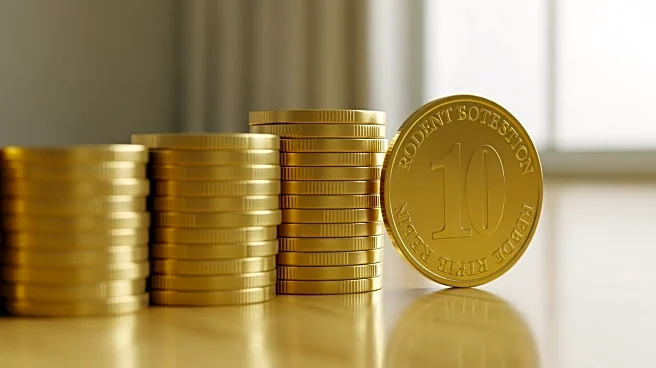What's Happening?
President Donald Trump has proposed sending Americans $2,000 rebate checks funded by tariffs collected by the government. This proposal is part of broader economic discussions and comes amid various significant
developments, including a potential deal between Visa and Mastercard to lower fees for merchants, which could impact consumer prices. Additionally, the FDA plans to remove warnings on hormone treatments for menopause, potentially increasing prescription options.
Why It's Important?
The proposal for $2,000 rebate checks could have substantial implications for the U.S. economy, potentially providing relief to consumers and stimulating spending. However, it also raises questions about the sustainability and long-term effects of using tariff revenues for direct payments. The potential deal between Visa and Mastercard could benefit retailers and consumers by reducing transaction costs, while changes in FDA regulations may expand healthcare options for women. These developments reflect ongoing shifts in economic and healthcare policies that could affect various stakeholders.
What's Next?
The proposal for rebate checks may face scrutiny and require legislative approval, with potential debates on its feasibility and impact. Stakeholders, including political leaders and economic analysts, will likely weigh in on the proposal's merits and challenges. The Visa and Mastercard deal may lead to further negotiations with retailers, while the FDA's decision could prompt responses from healthcare providers and patients. These developments will continue to unfold, influencing policy and economic landscapes.









